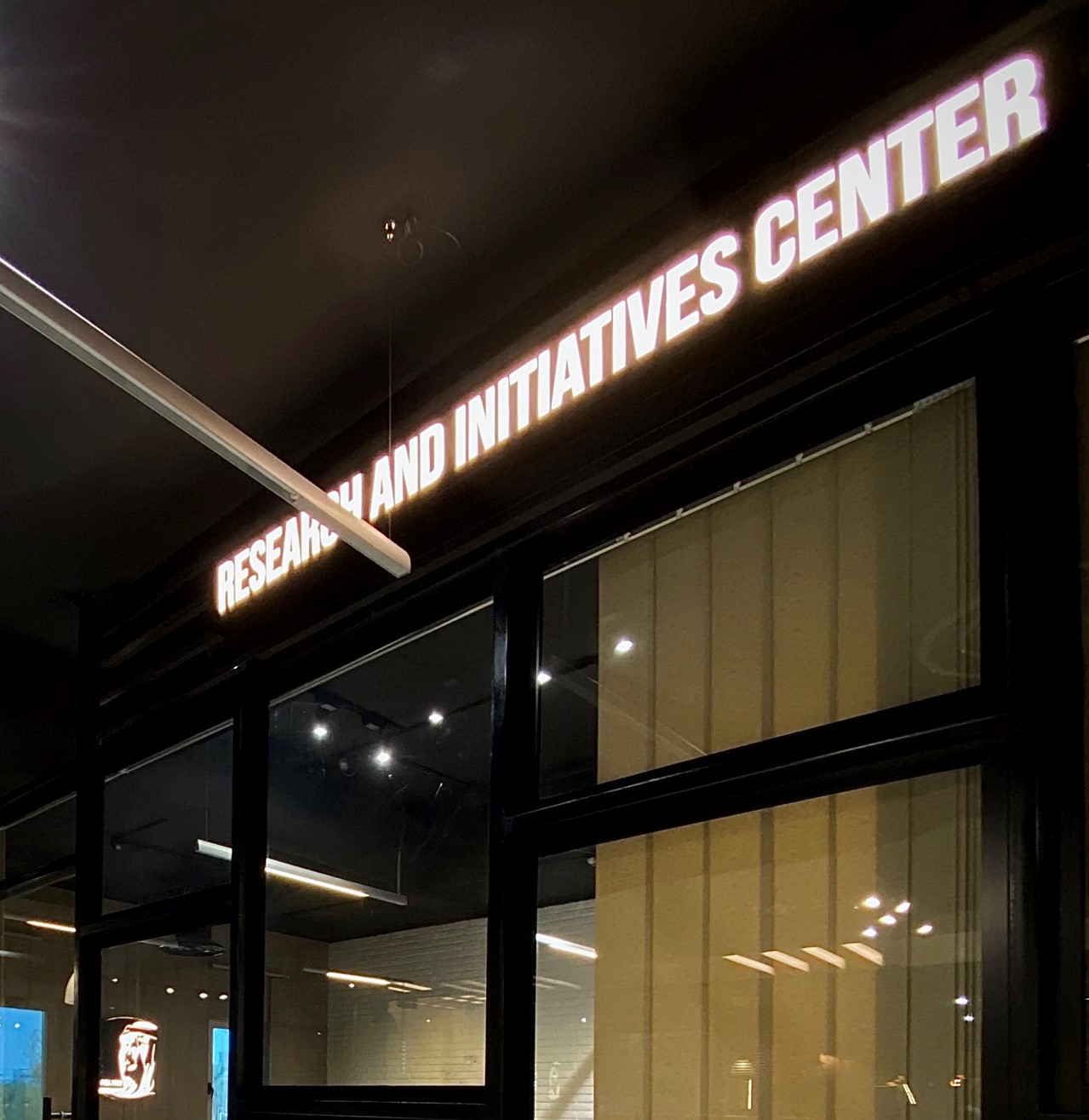Director of the Center for Sustainability and Climate Prince Sultan University Mohammad Nurunnabi Director of the Center for Sustainability and Climate Prince Sultan University Maria Koetter Director of the Center...
READ MORESDG 13: Climate Action
Environmental education measures
Sustainable Development Goal 13 (SDG 13) highlights the urgent need to combat climate change and its consequences. Educational institutions, as a critical component of this global movement, play a critical role in increasing awareness, establishing climate-resilient communities, and encouraging collaboration at the local and regional levels. PSU is dedicated to achieving SDG 13 via a number of environmental education programs and collaborative activities.
Local Education Programs on Climate Change:
The creation and execution of regional climate change education programs is one of PSU's main priorities. These initiatives seek to increase knowledge of the risks, consequences, adaption tactics, impact reduction techniques, and early warning systems associated with climate change among students, professors, and the general public. PSU holds lectures, seminars, and workshops to promote creative solutions to climate-related problems and to give a thorough understanding of them. Through these programs, PSU aims to equip people with the information and abilities they need to make wise decisions and take preventative action to lessen the consequences of climate change. This strategy supports SDG 13's overarching objective of promoting local climate knowledge and awareness. The following events were held in 2022 to inform the local populace about climate change.
International Conference on Sustainability: Developments and Innovations
The conference in 2022 put a heavy emphasis on the state of the art and current practices in various sustainable development goals. From all across the world, the researchers, practitioners, students, and contractors came together.
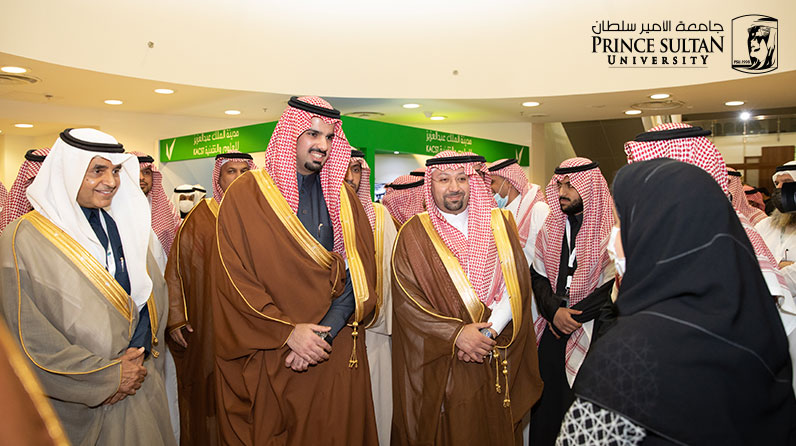
The ICSDI 2022 included a variety of presentations on difficult projects and research, as well as various guest speakers on chosen subjects. The conference featured a wide range of technical and panel discussions, short courses, and workshops that advanced expertise.
Read Full StoryA field trip to EV Expo 2022 for students of Electrical Engineering
In accordance with Saudi Vision 2030 and the Sustainable Development Goals (SDGs) of the United Nations, Dr. Umashankar Subramanian, Electrical Engineering, College of Engineering, organized a field trip for electrical engineering students to the largest electric vehicle event in Saudi Arabia, hosted by EV Auto Show, on November 2, 2022.
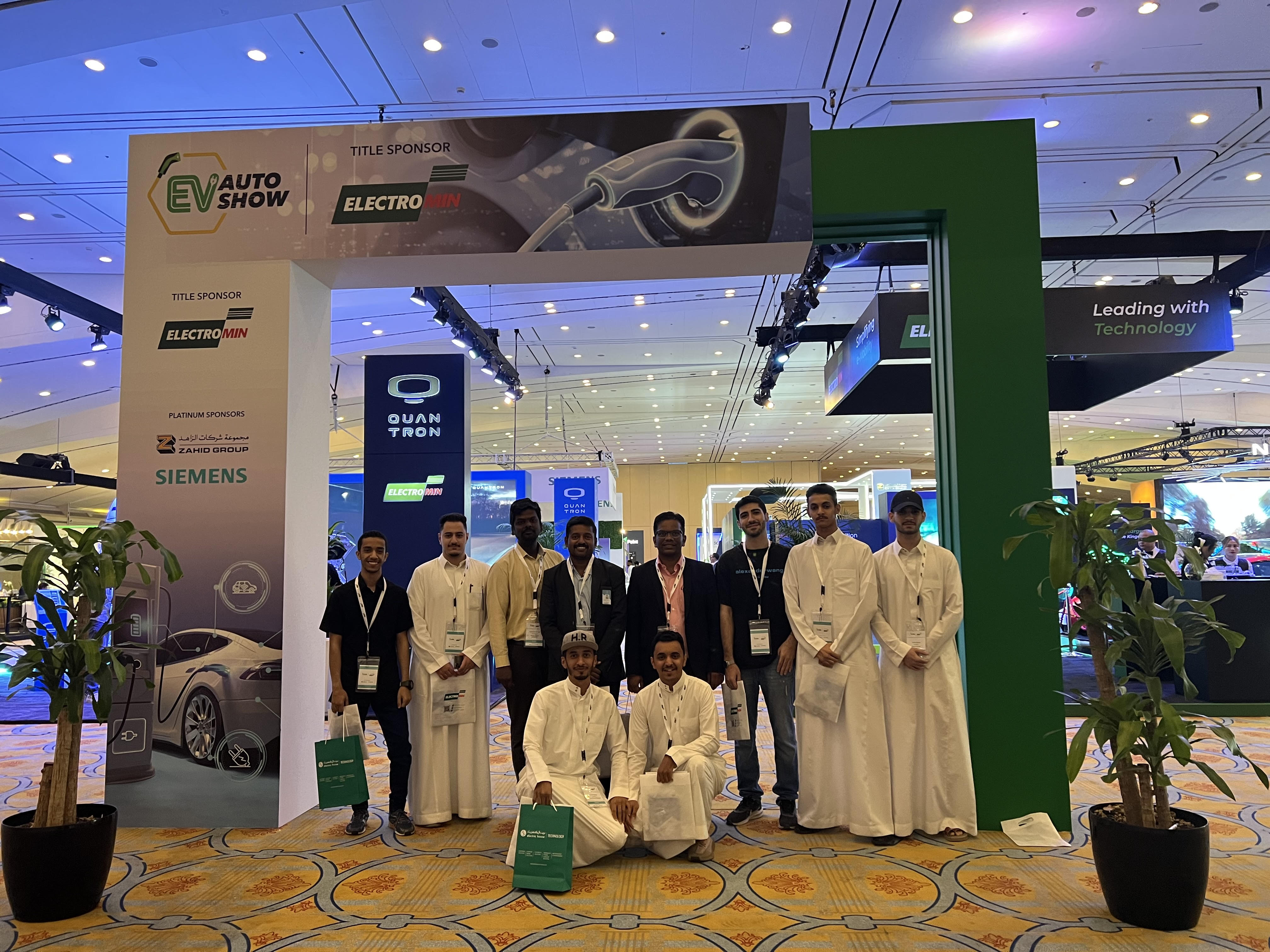
The EV Auto Show is an international display of the most recent advancements in electric automobiles sector. Its main goal is to build and advance a zero-emission environment on a worldwide scope.
Read Full StoryA field trip to LEAP 2022 for students of electrical engineering, communications, and networks engineering
The field trip to LEAP, an international level technical exhibition held in Riyadh on February 1, 2022, was organized by their course instructor, Dr. Umashankar Subramaniam, for the Electrical and Communications and Networks Engineering students.
LEAP is a unique event that serves as a worldwide platform for the most innovative technology experts from across the world. Modern technology are embraced there earliest, and progress is advancing there the greatest.
Read Full StorySolar pv based speed control of dc motor using ardiuno for fan and pump applications
Abdul Rahman Al-Zeer, Talal Al-Sharif, and Abdulelah Al-Yemeni, students in the Electrical Machines course in the Department of Electrical Engineering, completed a project relating to the operation and speed control of a DC motor powered by solar energy in accordance with the Saudi Vision 2030 under the guidance of Dr. Uma Shankar and Eng. Sivakumar. This work aims to develop students' skills in sustainability technology and techniques required to achieve future goals for the country and the world. The project serves the United Nations Sustainable Development 17 Goals 2030, which are:
- Affordable and Clean energy. (SDG#7)
- Industry, innovation and infrastructure. (SDG#9)
- Climate Action. (SDG#13)
- Partnerships for the goals. (SDG#17)
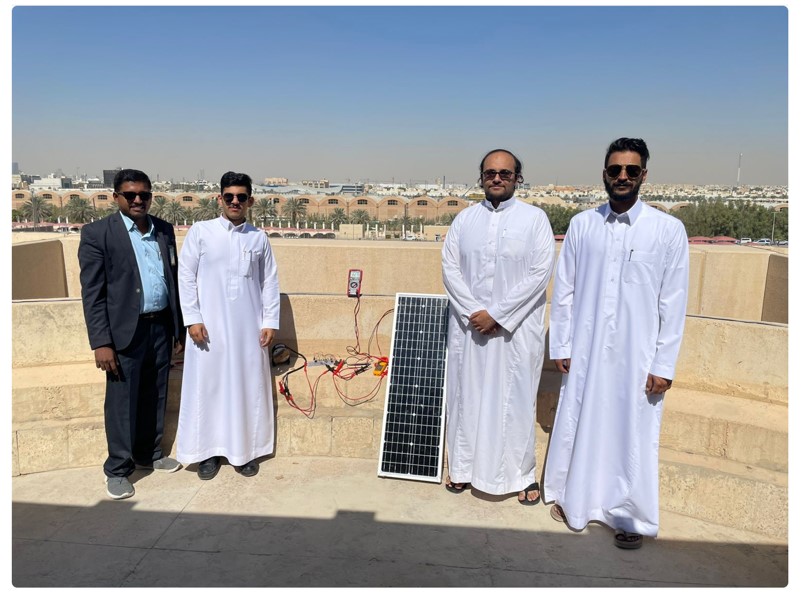
PSU SDG Club
In order to support the UN Sustainable Development Goals 2030 (SDG) agenda towards sustainability and climate justice, the Prince Sultan University SDG Club, which is a part of the Centre for Sustainability and Climate (CSC), engages students in higher education. It also equips them with the knowledge, skills, and pathways to action they need to be effective change agents in the present.
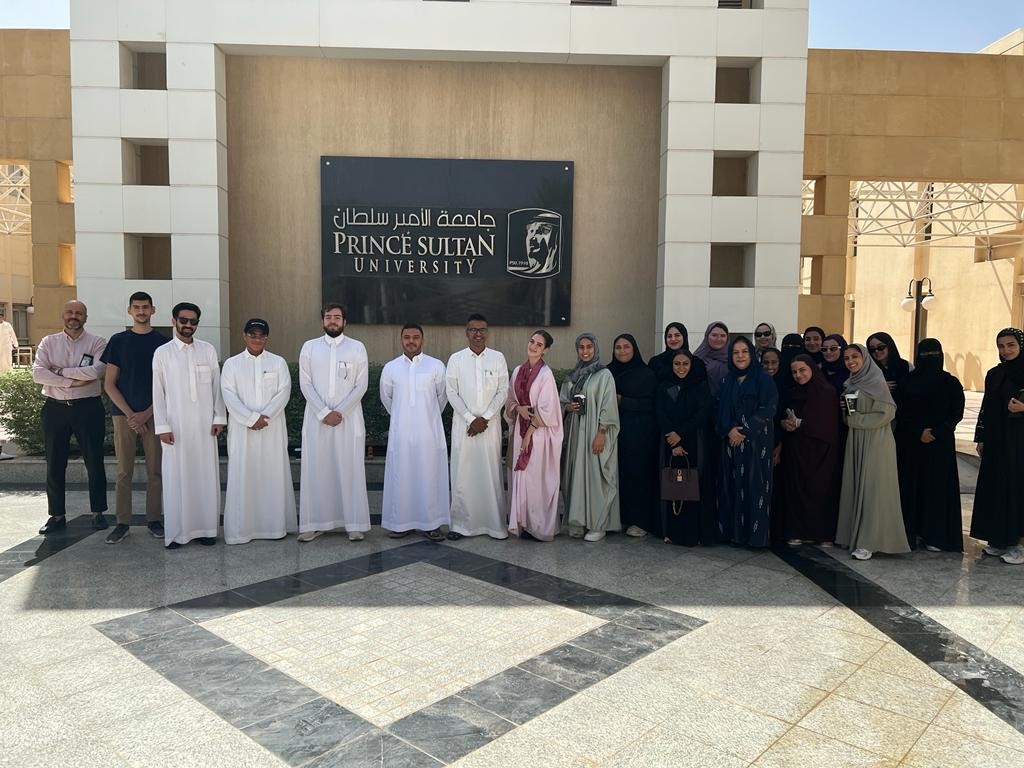
To update students on environmental and climatic issues, organize events where students may discuss important Sustainable Development Goals (SDG) topics, volunteer for SDG projects, and establish connections with the local and international communities is the mission of this club.
Visit the websiteNet Zero Emission and Transition towards Climate-Neutral Economies: The Role of Higher Education and Saudi Vision 2030
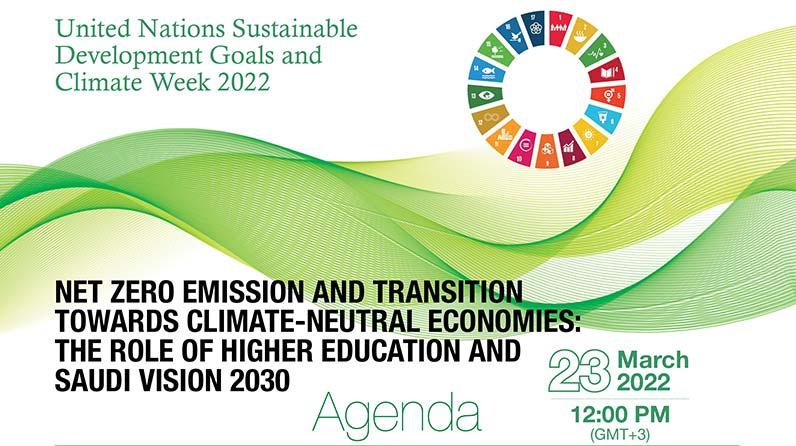
On March 23, 2022, speakers from several universities participated in this Zoom session. Higher education, sustainability, and the Sustainable Development Goals: A Call to Action was the topic of Professor Wendy M. Purcell's talk at Harvard University in the United States. Ms Fiona Goodwin, Deputy CEO of the EAUC and Secretariat for the Race to Zero for Universities and Colleges, provided an introduction to the event. Panel discussions on net zero emissions and transition to climate-neutral economies: the role of higher education and Saudi Vision 2030 were also held.
Read Full StoryIntegration of renewable energy and technological innovation in realizing environmental sustainability: the role of human capital in EKC framework
The impact of technological advancement is explored in this study piece. This cross-sectional study looks at the effects of technology advancement on the ecological footprints of the G-7 countries between 1990 and 2020. The findings show that environmentally friendly technology raises environmental quality. Results for panel causality were consistent. The study's findings may lend credence to the notion that there are fresh policy options that might aid in achieving SDGs 3,4,7,8,9 and 13 in the context of the G-7 nations.
Integration of renewable energy and technological innovation in realizing environmental sustainability: the role of human capital in EKC framework | SpringerLinkNexus between green technology innovation, green financing, and CO2 emissions in the G7 countries: The moderating role of social globalization
This study looks at the role that green funding and innovative green technologies have in fostering a more sustainable world. This study investigates how green money and technical innovation might help the G7 countries cut their CO2 emissions. For the period 1995 to 2019, this study used empirical research data from a panel of G7 nations. This study demonstrates that both green funding and green technological innovation have a negative but significant effect on CO2 emissions. This analysis found that nations could achieve the SDG-7 and SDG-13 goals if they adopted green funding and green technology policies.
Sharif, A., Saqib, N., Dong, K., & Khan, S. A. R. (2022). Nexus between green technology innovation, green financing, and CO2 emissions in the G7 countries: the moderating role of social globalisation. Sustainable Development, 30(6), 1934-1946.https://doi.org/10.1002/sd.2360
Revisiting EKC hypothesis in context of renewable energy, human development and moderating role of technological innovations in E-7 countries?
The study supports the EKC phenomenon's existence in E-7 economies, where economic growth is valued more highly than environmental sustainability. The results of the study show that upgrading of technology lowers pollution levels. In order to reduce carbon emissions throughout the time period under consideration, human progress, technical innovation, and the usage of renewable energy are hailed as the answers. Finally, several policy recommendations are offered.
Frontiers | Revisiting EKC hypothesis in context of renewable energy, human development and moderating role of technological innovations in E-7 countries? (frontiersin.org)Climate Action Plan
In support of climate action, PSU has developed a comprehensive policies that outlines the university's commitment to reducing its carbon footprint and increasing sustainability.
Sustainable Waste Management, Prevention and Disposal Policy
The PSU Management Department produced the Sustainable Waste Management, Prevention, and Disposal Policy on July 15, 2020.Prince Sultan University is a sustainable, green institution that promotes and implements methods and strategies for sustainable development at all levels. PSU promotes sustainable waste management and disposal practices that are put into place in conjunction with municipal and governmental organizations as part of its efforts to create a secure, environmentally friendly campus. One of the aims of this policy is to avoid carbon-intensive industries and similar chemical processes that cause the emission of unhealthy gases.
Read Full PolicyInstitutional Risk Management Policy
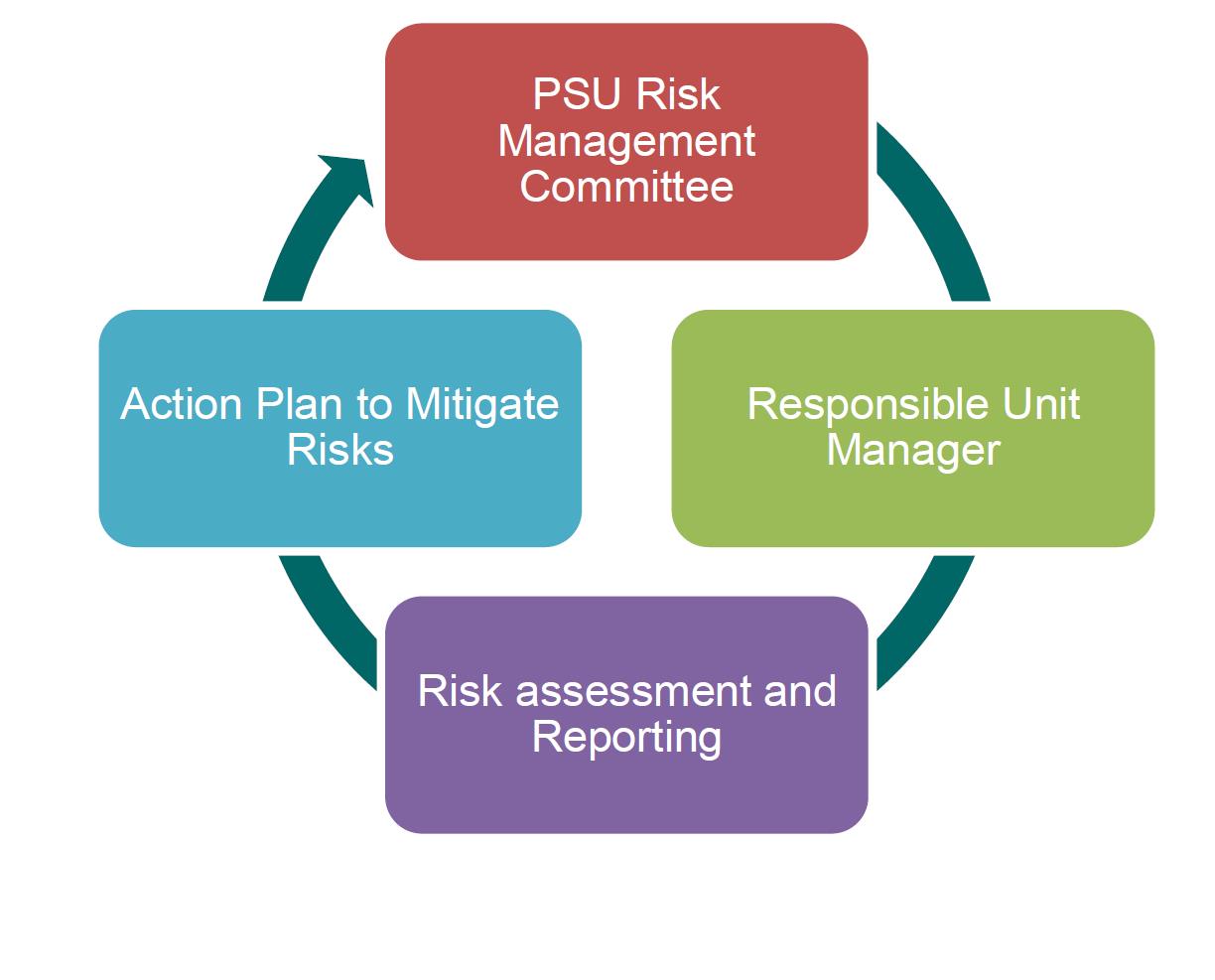
The Prince Sultan University's ("PSU") approach to risk management and the methods it uses to categorize, evaluate, and manage risk are outlined in this policy. Risk management is something that all unit managers must be accountable for. The risk management committee's duties include deciding how PSU will approach risk management with the help of unit managers, discussing and approving matters that have a significant impact on PSU's risk profile or exposure, continuously monitoring risks and ensuring that appropriate actions are being taken, and reviewing risks every two years.
Read Full PolicyCo-operative Planning for Climate Change Disasters
In light of a changing climate that is becoming more unpredictable, collaborative preparation for climate change catastrophes is essential. PSU actively engages in cooperative planning initiatives, which may include relocating individuals both domestically and internationally. PSU helps to the creation of preparations for evacuation and relief operations as well as strategies for managing climate change disasters by collaborating closely with regional partners and governmental organizations. Participation of the university in cooperative planning provides a coordinated response to problems brought on by climate change and promotes community resilience. This is in line with SDG 13's objectives to strengthen climate resilience and lessen the effects of natural catastrophes caused by climate change.
Prince Sultan University forms a partnership with Higher Education Sustainability Initiative (HESI), United Nations
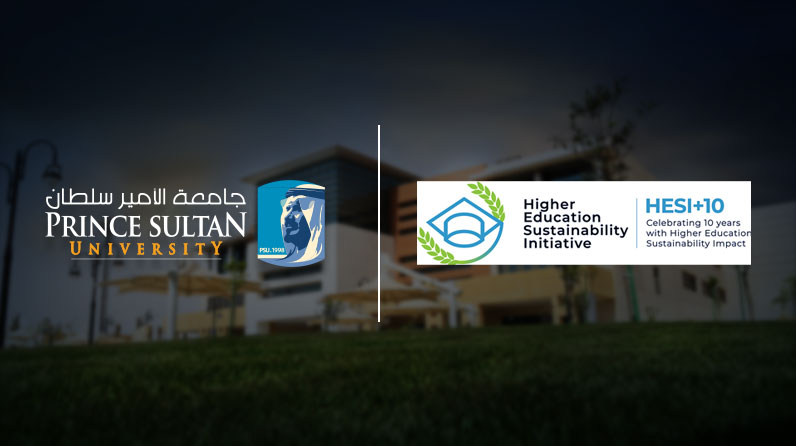
HESI serve as centers for creativity and critical thinking, fostering future leaders, legislators, business owners, scientists, researchers, and teachers. In order to advance in the implementation of the 2030 Agenda for Sustainable Development, HEIs are also essential in promoting a deeper knowledge of the SDGs and how they are interrelated. The HESI Partner Program, the most recent addition to the HESI action groups, aims to link higher education institutions, networks, and student organizations to foster a community of shared learning in support of SDG integration into curricula, research, programs, and campus practices and to facilitate knowledge transfer.
Read Full StoryThe Green Areas in the city and sustainable Approach: Analytical Study of Saudi Crown Prince Mohammed bin Salman's tree-planting Program
By a ratio of twelve, this initiative will increase the area covered by current trees and cut carbon emissions by more than half (4 percent). The article aims to improve both the natural and built environments by emphasizing sustainable methods that can be used to raise city environmental standards, utilizing effective designs for green spaces that make cities more appealing and offer more environmental services, and ensuring that the green spaces are created to reflect the values and societal norms of the people who will use them.
The Green Areas in the city and sustainable Approach: Analytical Study of Saudi Crown Prince Mohammed bin Salman's tree-planting Program - IOPsciencePredicting Efficiency of Innovative Disaster Response Practices: Case Study of China’s Corporate Philanthropy
This study finds that environmentally unfriendly businesses have been acting more philanthropically in order to offset the unfavorable reputation that has come about as a result of their significant pollution output. The companies considered in this study are those that are listed on the Shenzhen stock exchanges. Reviewing innovation, idle resources, and director compensation also revealed a strong favorable association.
Sustainability | Free Full-Text | Predicting Efficiency of Innovative Disaster Response Practices: Case Study of China’s Corporate Philanthropy (mdpi.com)Local and Regional Impact
PSU's commitment to environmental education and collaborative efforts in climate action impacts not only the local community but also the broader region. By providing the tools and knowledge necessary to address climate change at the local level, PSU is indirectly contributing to regional sustainability and resilience. This regional impact is crucial in addressing the trans-boundary nature of climate change challenges and ensures that the community remains proactive in mitigating its effects.
Professor Mohammad Nurunnabi participated as a speaker in Saudi Youth for Sustainability Conference 2022
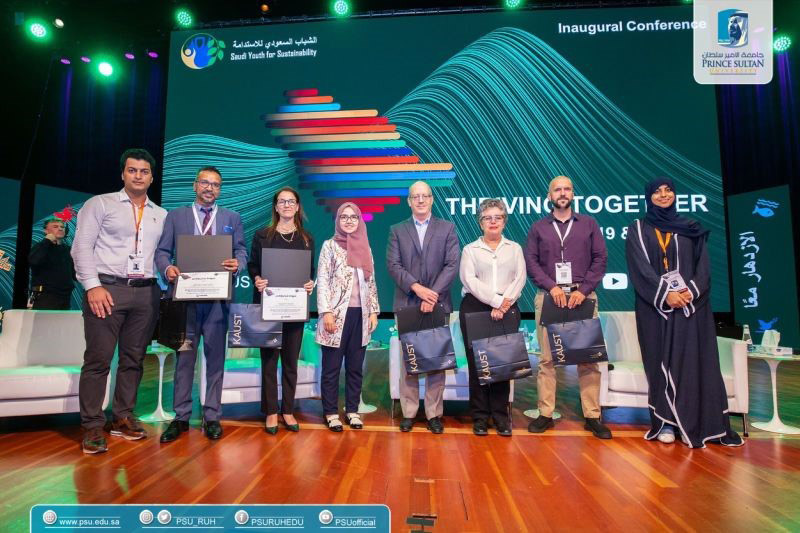
Professor Mohammad Nurunnabi discussed “Re-imagining the Role of Education on Sustainability” and highlighted that collective efforts from all Saudi Universities will accomplish Vision 2030 and Saudi Green Initiative towards a sustainable future of Saudi Arabia.
Read Full StoryDisplaced people and refugees are the important agenda for inclusive SDGs - Discussing UNEP YEA! Global Summit 2022
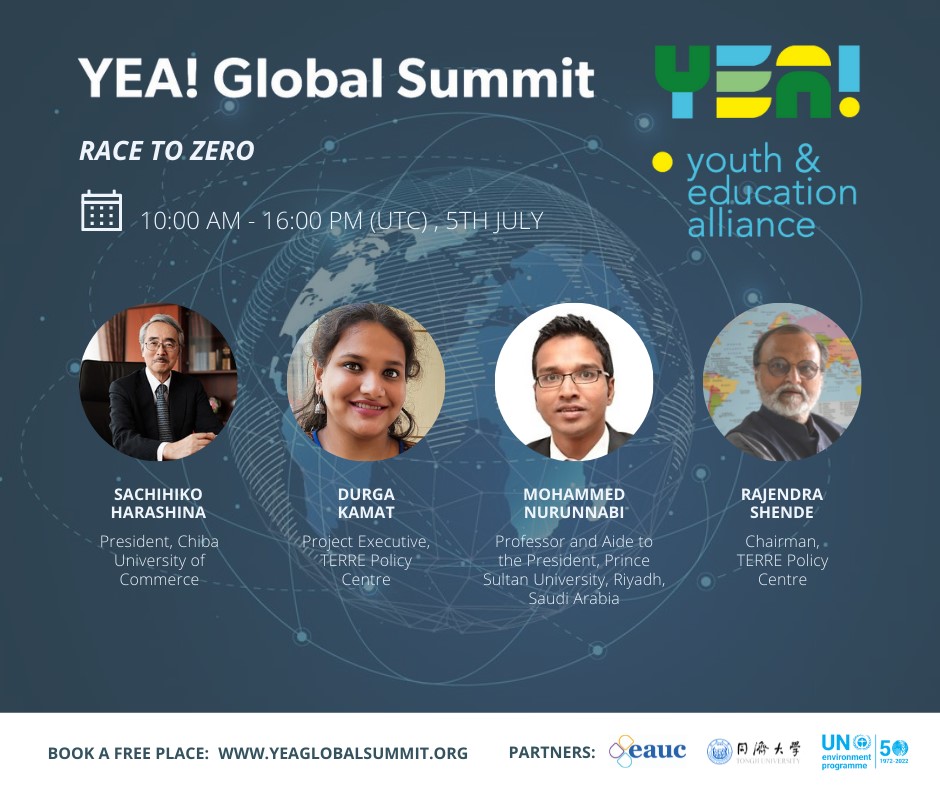
Professor Mohammad Nurunnabi PhD (Edinburgh), FAIA(Acad), SFHEA, FRSA, CMBE, CMA, FFA, FIPA, CPA from Prince Sultan University was a distinguished speaker in the session titled – “Continue the conversation with critical questions and ambition for Race to Zero Universities and Colleges”.
Read Full StoryCollaboration for SDG best practice
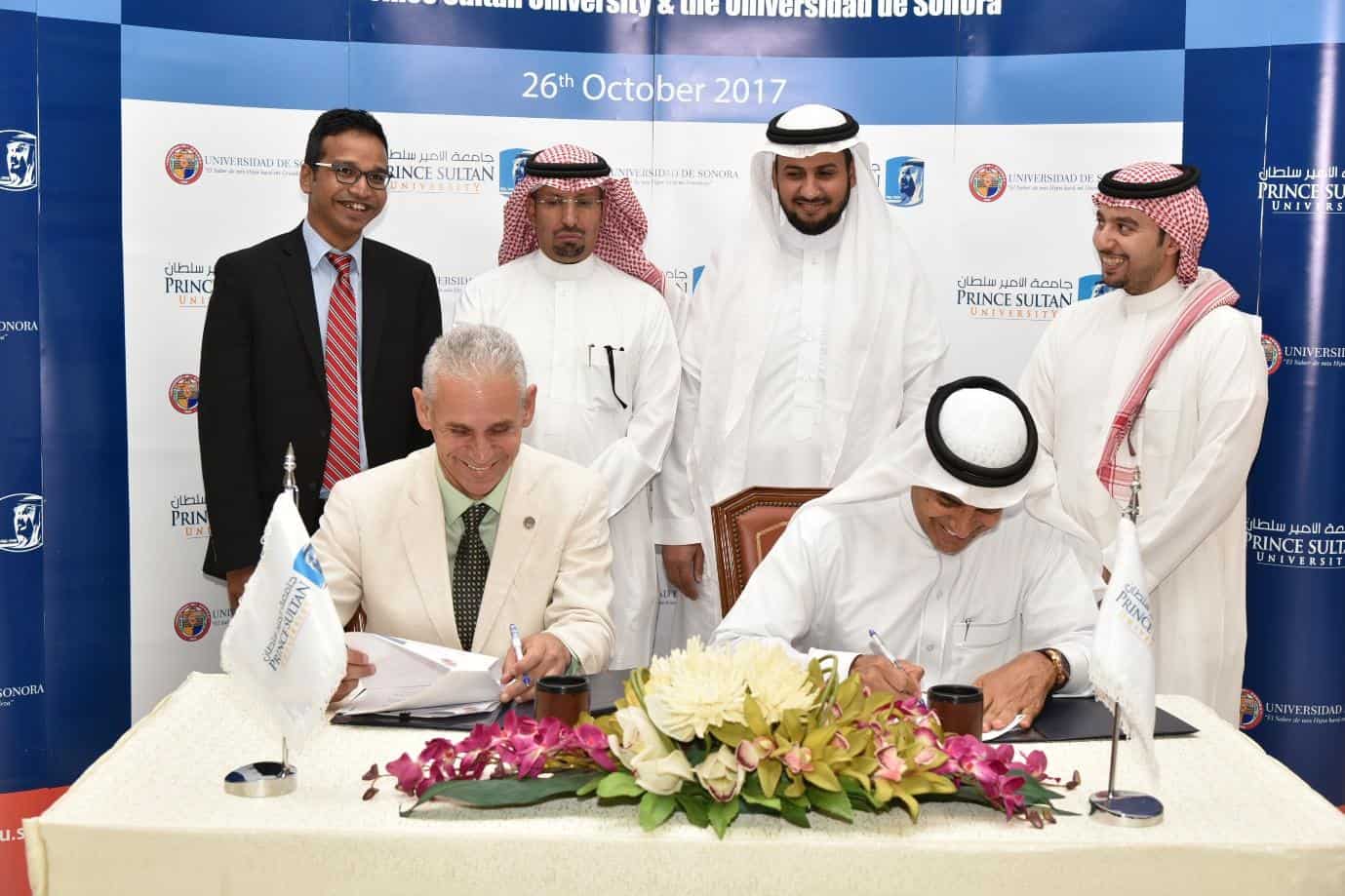
PSU has international collaboration and research. In research, we focus on review comparative approaches and develop international best practice on tackling the SDGs
Read Full StoryInform and support government
Inform and support local or regional government in local climate change disaster or risk early warning and monitoring.
Prince Sultan University is the first Carbon Neutral Certified Company in the MENA Region

PSU has international collaboration and research. In research, we focus on review comparative approaches and develop international best practice on tackling the SDGs
Read Full StoryPrince Sultan University is the first Carbon Neutral Certified Company in the MENA Region
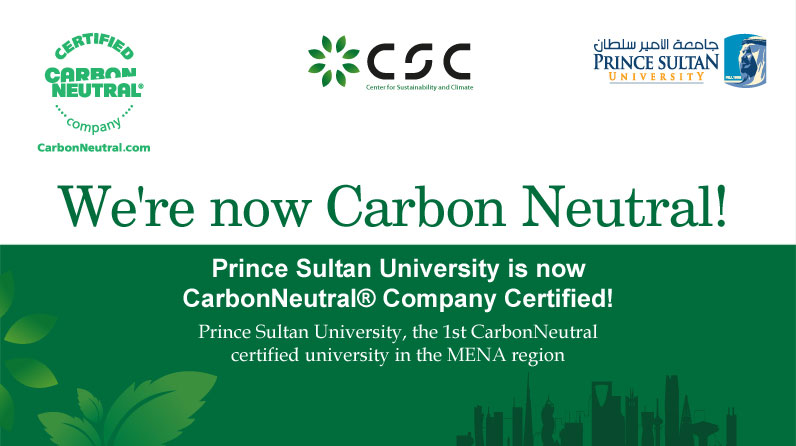
Prince Sultan University is partnering with Climate Impact Partners, an expert in carbon market solutions for climate action, to earn CarbonNeutral® certification. The university had an independent evaluation of the greenhouse gas emissions created by the 5000 tonnes of CO2e covered by certification. The first Saudi university to pledge net zero carbon university by 2060 will be at Prince Sultan University.
Read Full StoryPSU x Jahez Initiative
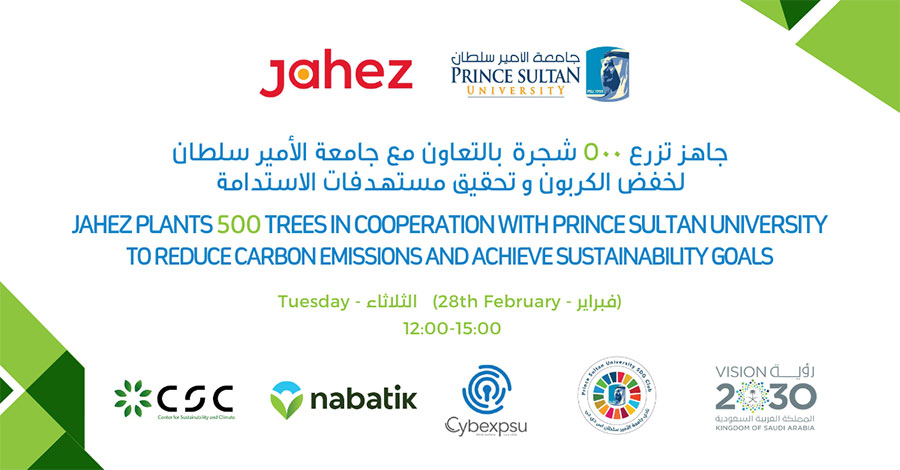
Together with Prince Sultan University, Jahez plants 500 trees in an effort to cut carbon emissions and meet sustainability goals.
Read Full StoryAssessment of Physical Vulnerability and Uncertainties for Debris Flow Hazard: A Review concerning Climate Change
Prince Sultan University's Department of Engineering Management conducted the research in collaboration with other researchers. This article examines how infrastructure is now physically vulnerable, focusing on buildings built with debris flow dangers in mind during the past 20 years. In-depth discussion has also been had on the uncertainties related to the vulnerability assessment and their quantification methods.
Land | Free Full-Text | Assessment of Physical Vulnerability and Uncertainties for Debris Flow Hazard: A Review concerning Climate Change (mdpi.com)Environmental education collaborate with NGO & Collaborate with NGOs on climate adaptation
Understanding Sustainable Development Goals: ACT NOW!
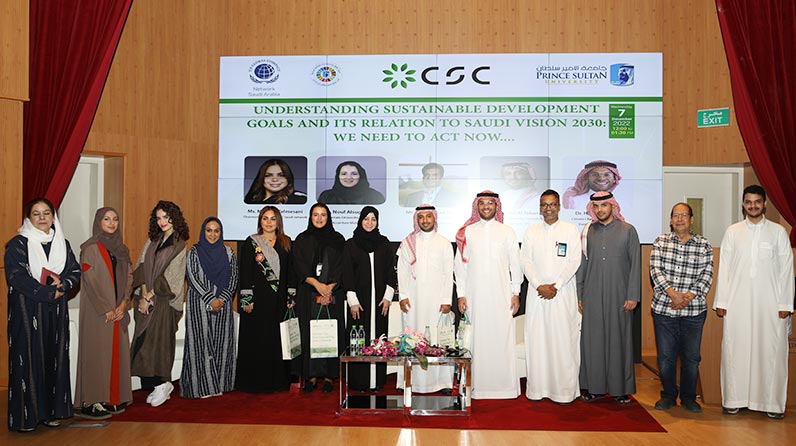
On Wednesday, December 7, 2022, the Centre for Sustainability and Climate (CSC) organized a session for PSU students called "Understanding Sustainable Development Goals and its Relation to Saudi Vision 2030" in collaboration with their strategic partner United Nations Global Compact (UNGC) Saudi Network. This session's goal is to examine how students may participate in SDG efforts to support Saudi Vision 2030 and have a better grasp of all 17 SDGs. An international roadmap for peace and prosperity for people and the earth, both now and in the future, is provided by the United Nations 2030 Agenda for Sustainable Development, which was accepted by all UN Member States in 2015. The 17 Sustainable Development Goals (SDGs), which are an urgent call to action for all nations—developed and developing—in a global partnership, are at the center of it.
Read Full StoryUnited Nations Global Compact Network Saudi Arabia forms a strategic partnership with Prince Sultan University to advance the UN’s 2030 Agenda
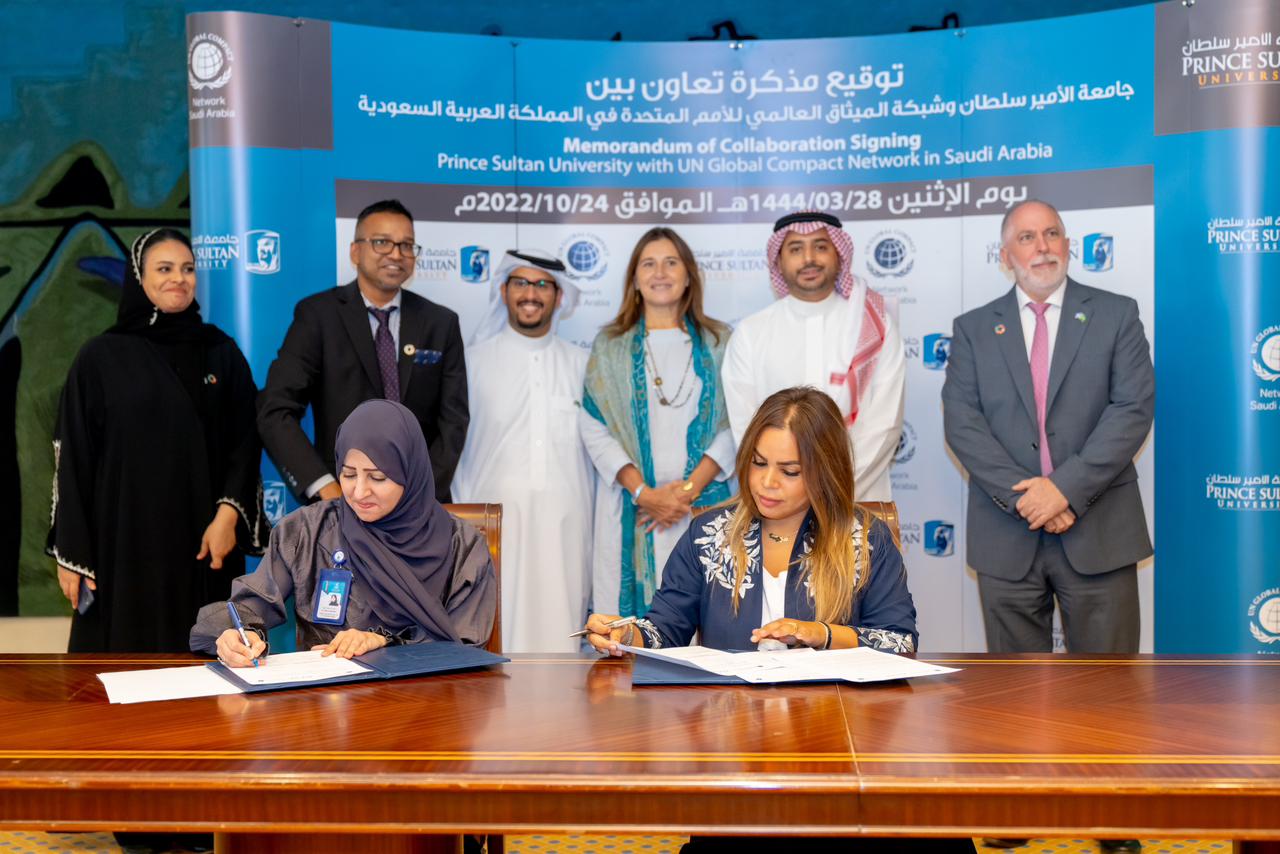
Through higher education institutions, the collaboration hopes to advance UN's 2030 Agenda more effectively. The UNGC aims to facilitate sustainability in the business sector through a number of initiatives. Additionally, UNGC strives to close the knowledge gap among Saudi youth as well as educate them on responsible business behavior and promote a practical understanding of diligent corporate management by partnering and collaborating with academic institutions like PSU, which is also in line with Vision 2030.
Read Full StoryNews related to SDG 13

The Center for Sustainability and Climate (CSC) hosted a workshop along with their strategic partner United Nation Global Compact (UNGC) Saudi Network titled by “Understanding Sustainable Development Goals and its...
READ MORE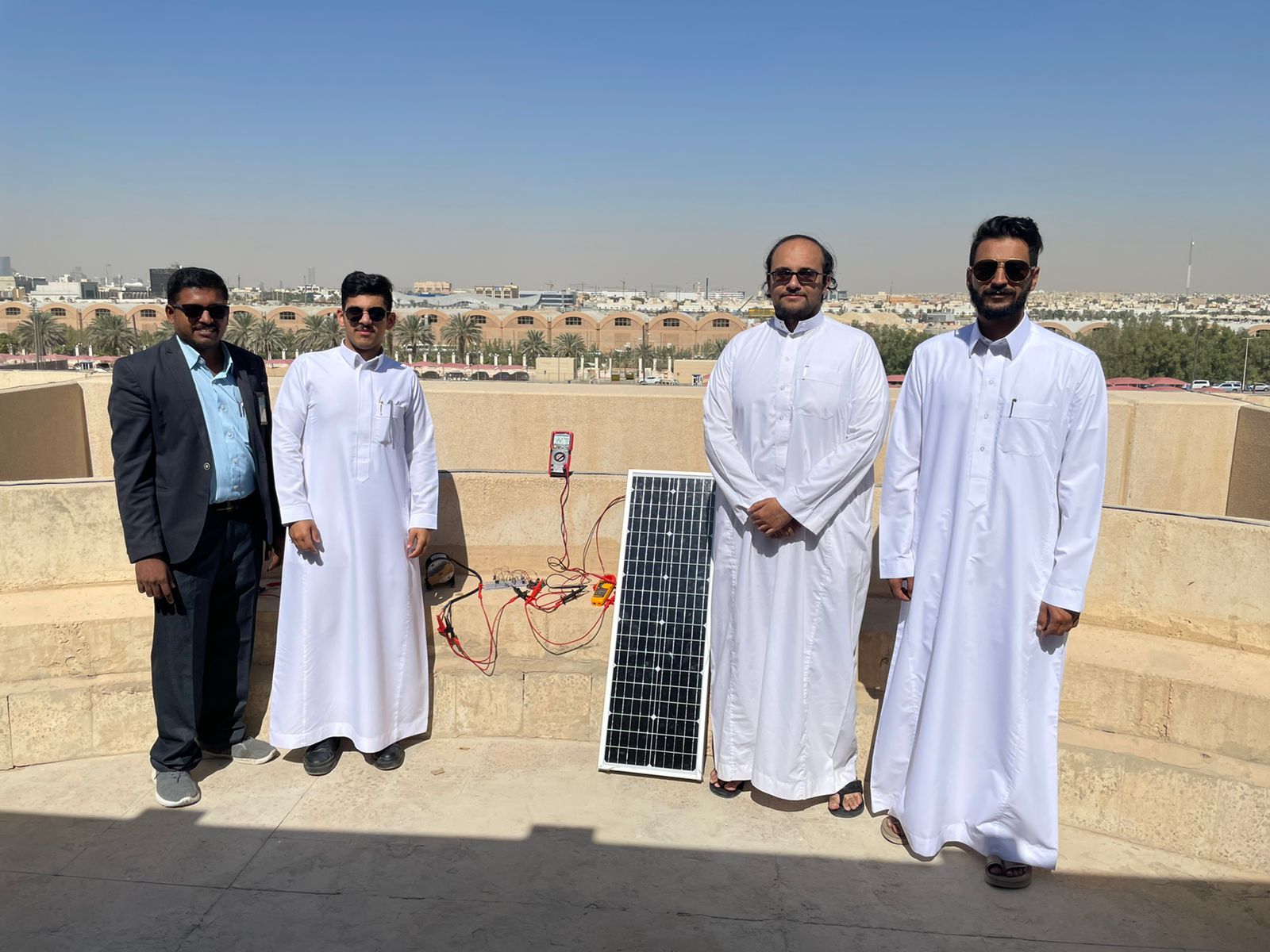
In line with the Saudi Vision 2030, students of Electrical Machines course in the Department of Electrical Engineering, Abdul Rahman Al-Zeer, Talal Al-Sharif and Abdulelah Al-Yemeni, under the supervision of...
READ MORE




